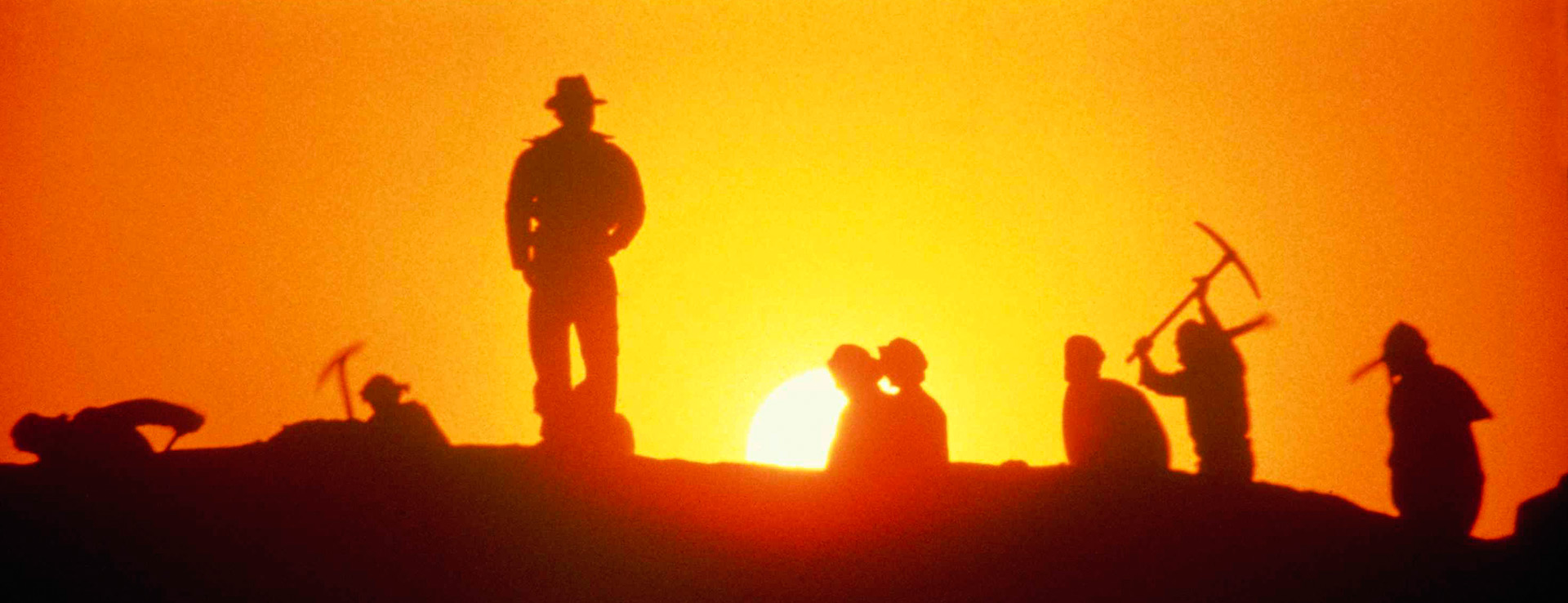Indiana Jones Fan Spotlight: Mitch & Ed
Two fans from opposite sides of the world have helped celebrate Indy fandom for over 15 years.
As audiences around the world experience Indiana Jones and the Dial of Destiny, coming soon to Disney+ and physical media, Lucasfilm.com is talking to fans of the archaeologist about how his adventures have inspired them. Over 40 years since the character first appeared on the big screen, the Indy fandom comprises multiple generations of people from all walks of life.
Driven by his passion for uncovering ancient mysteries, Indiana Jones travels the world and makes friends wherever he goes. Likewise, the passion of Indiana Jones fans creates friendships that cross oceans and hemispheres. For American Mitch Hallock and Australian Ed Dolista, their individual journeys as Indy fans converged when they decided to pool their talents on a new idea: a podcast celebrating their love for the adventurer-archaeologist that has become a gathering place for a worldwide community of like-minded fans.
Both Hallock and Dolista’s stories begin in 1981 with the debut of Indiana Jones and the Raiders of the Lost Ark. “There was a show on the Australian government broadcast station called Four Corners, which had a little entertainment section at the end,” says Dolista, who grew up in the town of Geelong not far from Melbourne. “I was watching the show, and they spoke about this new film called Raiders of the Lost Ark starring Harrison Ford. I thought, ‘I know that name.’ They showed what felt like the entire opening sequence of Raiders, though it probably wasn’t. It was Han Solo, but it didn’t look like Han Solo. It just blew my mind.”
Only 11-years-old at the time, Dolista convinced his parents to take him to the local cinema where he was “absolutely mesmerized,” as he puts it. “I loved Star Wars, Superman: The Movie, and Flash Gordon,” he explains, “but this wasn’t sci-fi or fantasy. It was grounded in reality and I’d never seen anything like it.”
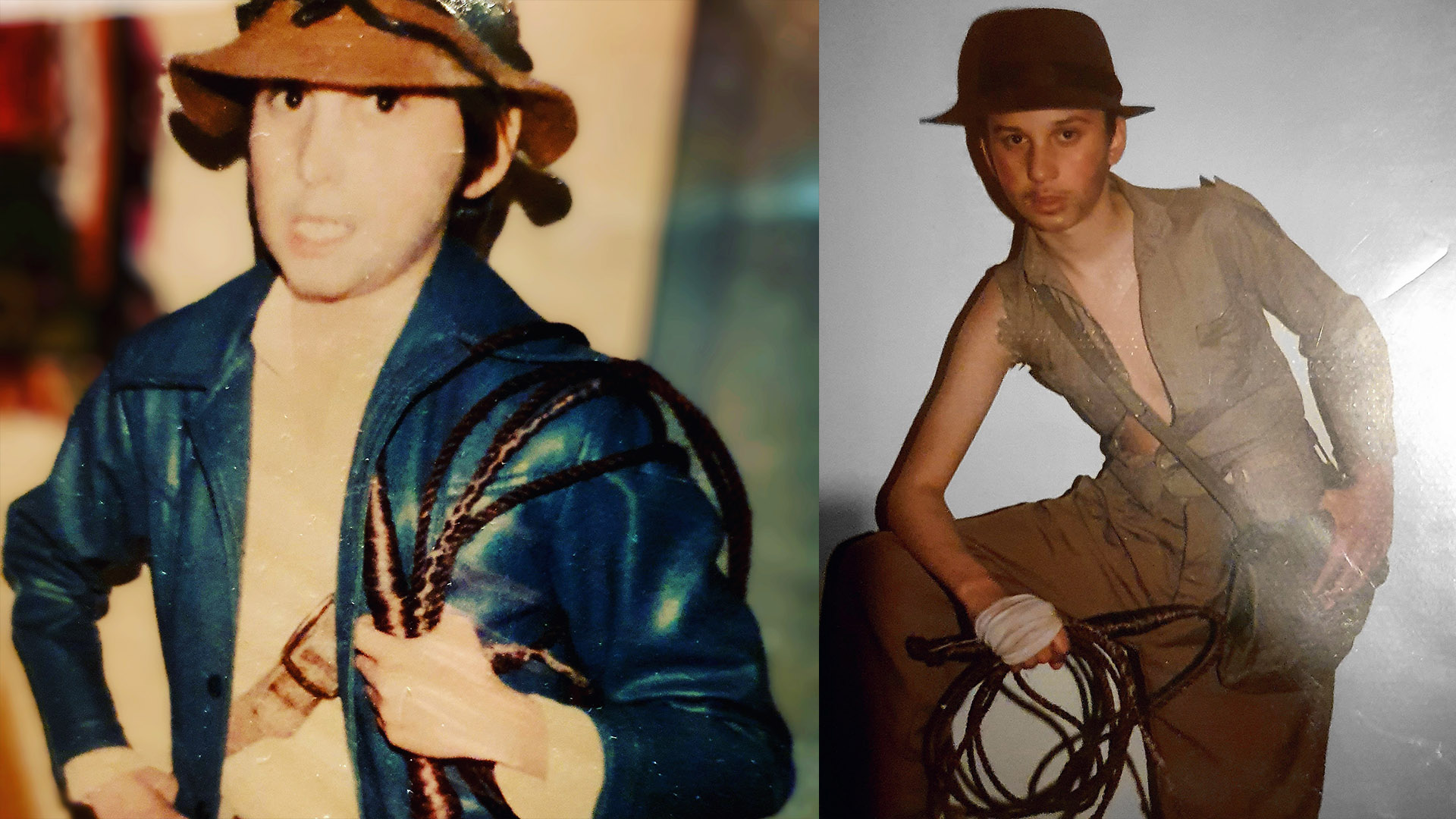
Over in America that summer, a 13-year-old Hallock was another Lucasfilm fan who convinced his grandmother to take him to a preview screening of Raiders in their hometown of New Haven, Connecticut. “My Italian grandmother was deathly afraid of snakes, and literally ran out of the movie theater during the Well of Souls scene,” he recalls, “but I couldn’t leave! I saw it 13 times that summer. Anybody I could drag to the movie theater…I couldn’t get enough of it.”
For both adolescents, it was the character himself who struck a nerve. “Everyone loved Indy, whether you were five or 90 years old,” says Dolista. “Raiders can be pretty scary, but like James Bond, lots of people could relate to the character, even more so in some ways. James Bond was a rich spy and nothing would phase him. Roger Moore was my James Bond, and he’d give a little quip and be alright, whereas Indy felt every punch. You could relate to him even more.”
Not only did these young fans gobble up every bit of information about Indiana Jones, but their interest in the story soon became influential in other ways. In Hallock’s case, it turned his school studies around. Though always curious about the arts, he found subjects like history and religion uninteresting. “Raiders came out, and what was in it? This stuff that Mr. Parkinson, my religion teacher, was talking about,” says Hallock, “the Ark of the Covenant and everything. Then there was World War II and all this history. Suddenly a light goes on, and because of Indiana Jones, I turned myself around and got into my studies. The following semesters I had straight A’s and ever since I’ve had a passion for history.”
Dolista meanwhile was inspired to make his own home movie version of an Indy story. “In 1985, we ended up filming a Temple of Doom story on Super8,” he recalls. “We called it Indiana Jones and the Temple of Peril (this was before the ride of the same name). My friend dressed up as Mola Ram with headgear made from polystyrene. My mum got a sheep’s heart from the local butcher. My dad made this beautiful carving of Indy’s sword. A close group of my friends would get together and make these films. We were trying to relive the films in real life.”
Hallock and Dolista’s paths wouldn’t converge, however, until after they’d each set out on their respective careers. And yes, both took further inspiration from Indy in their vocations. Hallock had always loved illustration and design, and counted original Raiders poster artists Richard Amsel as a key influence. He’d also become fascinated with film marketing, inspired to learn more after watching Indiana Jones and Star Wars making-of documentaries. “There was a guy who worked for Lucasfilm named Sid Ganis,” he explains. “I would see his name in the credits. Who was this guy? It seemed like he had the coolest job in the world.”
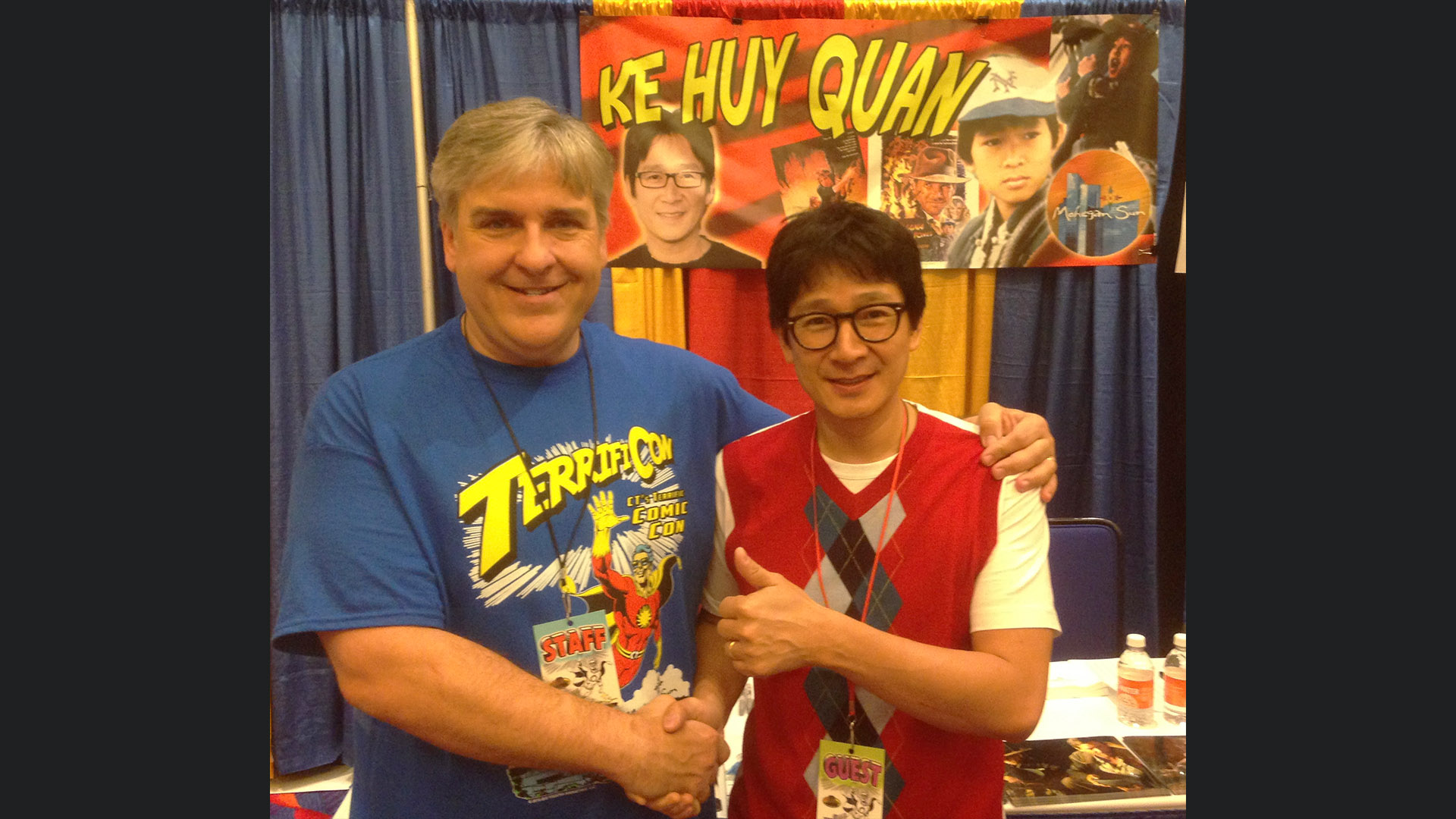
Hallock’s breakthrough came when he was just 23 years old and assigned as a marketing art director for a local college. Tasked with creating a new product catalog, he devised an ambitious concept inspired by Indiana Jones. “This was just something to sell office supplies,” he describes, “but we did it all like a movie booklet. We took Styrofoam coolers, spray-painted them to make it look old, then went to the beach for a bucket of sand, and turned the photo studio into the Well of Souls. I hate snakes, but there was a guy who had a stuffed rattlesnake so we put that in the shot. It was like you were discovering these ancient office products.”
Dolista, meanwhile, followed his own creative path. “My love of Indiana Jones and Star Wars and Hollywood movies inspired me to become an actor,” he says. “I joined a group called the GSODA Junior Players in Geelong. The first show I ever did starred Guy Pierce and Portia de Rossi…and me. [Laughs.] It was in The King and I, and they weren’t famous yet, of course. I just got the theater bug. I did lots of musicals like Brigadoon and South Pacific. At university I did things like Little Shop of Horrors. This was all amateur work, but it was good to get the juices flowing.”
While continuing to act, Dolista also became involved in Australian public radio, for which he hosted various programs for over a decade. This, combined with some experience in web development, helped influence yet another Indiana Jones project. “There were murmurs of a new Indiana Jones movie coming up,” Dolista explains. “I’d just wrapped up my disco radio show because I wanted my Saturday nights back. Then I heard about this new thing called ‘podcasts.’ You could actually record something and people listened to it when they wanted to. You didn’t have to be there on the air. That sounded pretty good!”
By 2007, Indiana Jones and the Kingdom of the Crystal Skull was in production and the anticipation from fans was steadily growing. Dolista had begun listening to fan-run Star Wars podcasts, and when one program started discussing Indiana Jones, inspiration struck. “I thought, ‘Hang on a second, that’s what I can do. I know Indiana Jones,’” he explains. “So I wrote in and offered to do a little segment for them.” This would quickly spin off into a full-fledged program that Dolista called the “IndyCast.”
Halfway around the world, Hallock was also enjoying the buildup to Crystal Skull’s release, and he didn’t have to go far for excitement. The Lucasfilm production had set up camp in his own hometown, filming scenes for the movie at Yale University and other locations in Connecticut. The lifelong fan was enjoying every minute of it.
“You don’t know what surreal is until you’re in your hometown – where you grew up and went to the store and went to school and saw movies – and there are the people who made those movies that you loved,” Hallock explains. “I’d go down and watch the filming every day. I’d never been on a movie set and had no idea what the protocols were. They’d taken over Yale and the streets of New Haven to make it look like 1957. I started doing spoiler-free set reports for a fansite called TheRaider.net.”
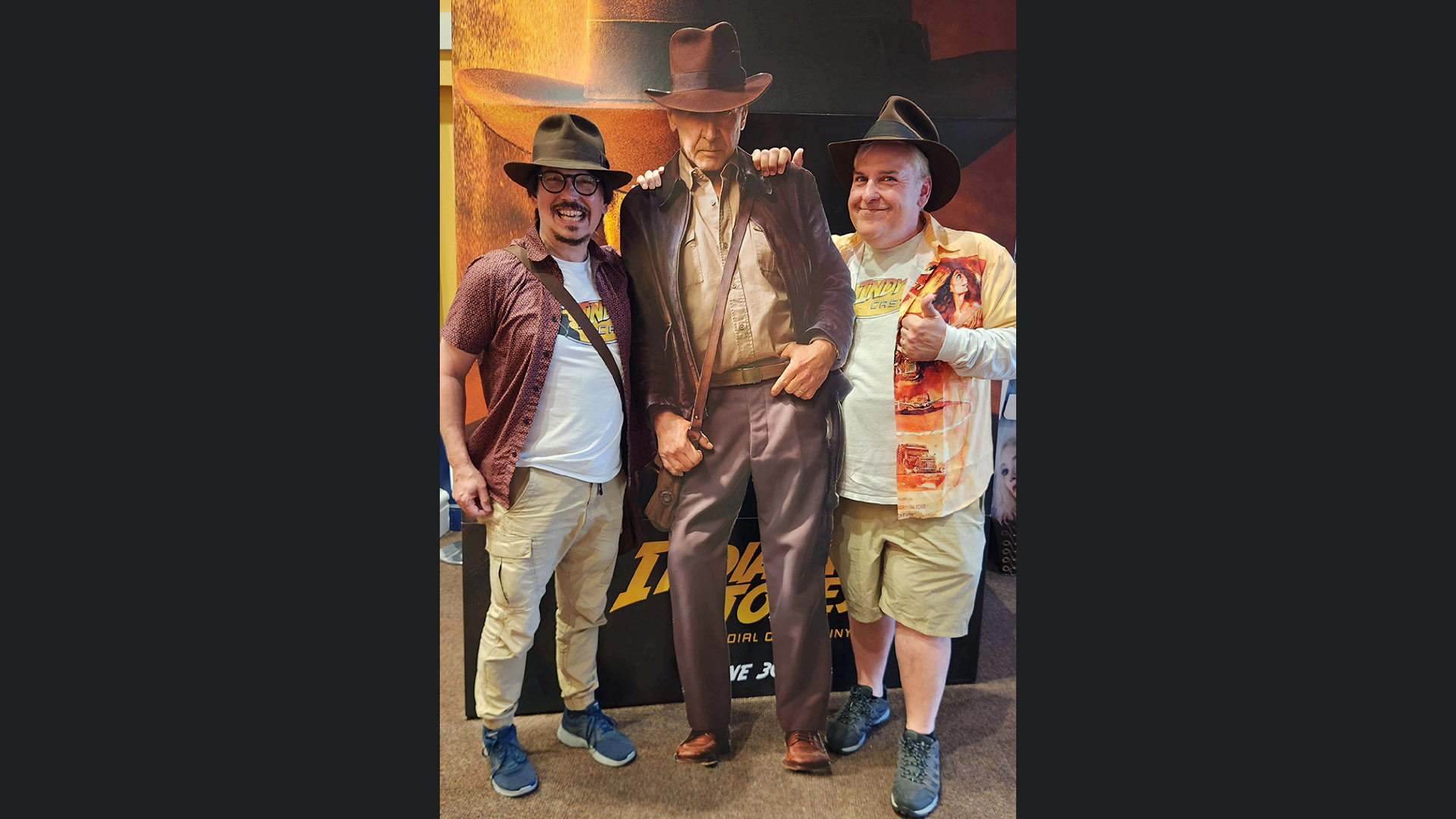
These reports would finally bring Hallock and Dolista together. When the former began listening to Dolista’s new podcast segments, he recognized that the host was using his own set reports to help share the latest news. “So I wrote him an email and we became friends and I started helping,” Hallock says. “Ed offered me the chance to come on and do my own reports for the IndyCast. I didn’t know anything at first. I had a horrible microphone. Things kept getting bigger and bigger in the lead-up to Crystal Skull. There was so much going on in 2008.”
As Dolista puts it, “It got a lot better when Mitch emailed and offered to contribute. The more people, the better. You can record this in a vacuum, but it’s great to have the feedback and interact with each other.” Their partnership became the center of a growing team of correspondents from multiple countries, each sharing their own insights, research, opinions, and stories about all things Indiana Jones. It also marked a significant confluence for both Hallock and Dolista. The skillsets and experience that had been inspired by their childhood passion were now being used in the service of that very material.
“The IndyCast tapped into a community that you might not have thought was out there because Indiana Jones himself was a lone hero,” says Hallock. “He seems like a solitary figure. But if you go back and watch all of the films, you realize there’s a family, whether it’s his dad, his son, Marion, or the extended family of Sallah, Captain Katanga, Short Round, Willie, or Marcus Brody. They’re all different. You’ve got the curator, the best digger in Cairo, the captain of the boat, a little kid who’s a pickpocket, and they all come together and join the adventure. Similarly, when we did the IndyCast, there was Ed, then I came aboard, and slowly all of these fans who were just as passionate and just liked talking about Indiana Jones came together. All different people from different walks of life.
“That character of Indiana Jones unlocked something inside of these people,” Hallock continues, “whether it was a curiosity about history, art, music, teaching, or archaeology. That character has tapped into a passion that all of these people share and that doesn’t go away. He’s constantly being rediscovered. You didn’t have to be 13 years old in 1981 like me. You could be like my sons who were eight years old in 2008 when they saw Crystal Skull. It continually educates people. That’s the magic of the stories and the IndyCast. The guy we talk about is so many different things to so many different people. He’ll never go away.”
16 years and counting into his podcasting journey, Dolista sees a bright future ahead. “I know ‘it’s not the years, honey, it’s the mileage,’ and we’re all getting older and busier, but we’re going to keep going with our monthly schedule,” he says. “If we can keep it up like Indiana Jones himself that will be great.” Reflecting on the value of the character, he explains that “all of us have that sense of adventure and feel that, when push comes to shove, we can go beyond and do the right thing. We can stand up for what is right even though we don’t have superpowers. I hear many stories of fathers and sons loving Indy. Just going to the Indy movies with your family is something that comes up a lot. The overwhelming thing is this warmth and love of the character.”
Hallock (who still aspires to interview his hero Harrison Ford one day) concludes that “Indiana Jones strikes a nerve with people all over the world who have a curiosity about what’s out there, what’s beyond their neighborhood. Indiana Jones takes you places you’d never thought you’d go. It makes your dreams real. How many other movie franchises can say that, in all honesty? A fictitious character has worked his way into people’s lives. Think of James Bond, I don’t know any secret agents. I don’t know any Jedi Knights. But I do know teachers and archaeologists and doctors. You could be Indiana Jones. You can’t be Superman or Batman, but you could an educator or explorer. That’s the magic.”
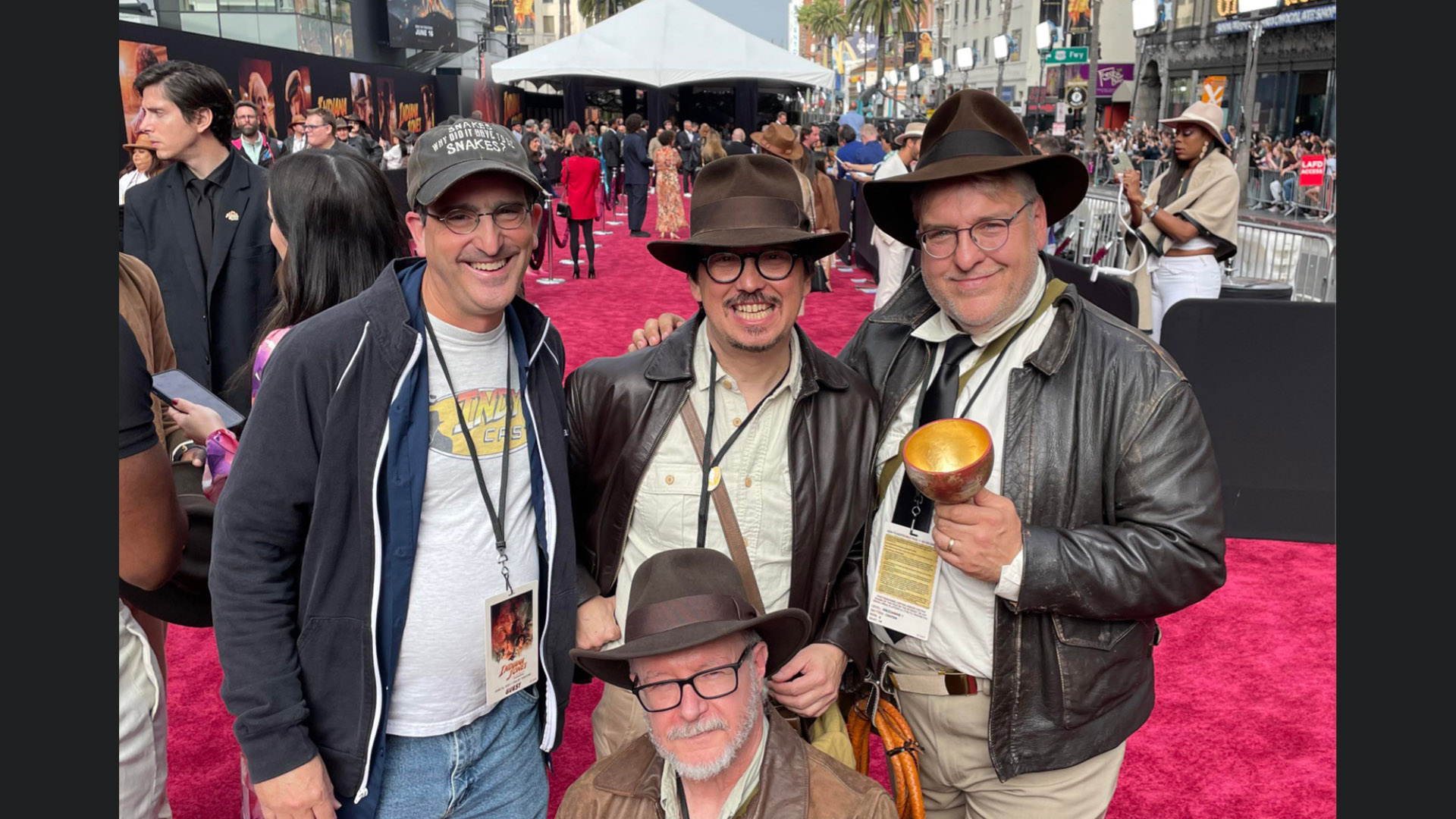
Lucas O. Seastrom is a writer and historian at Lucasfilm.
—
Lucasfilm | Timeless stories. Innovative storytelling.

